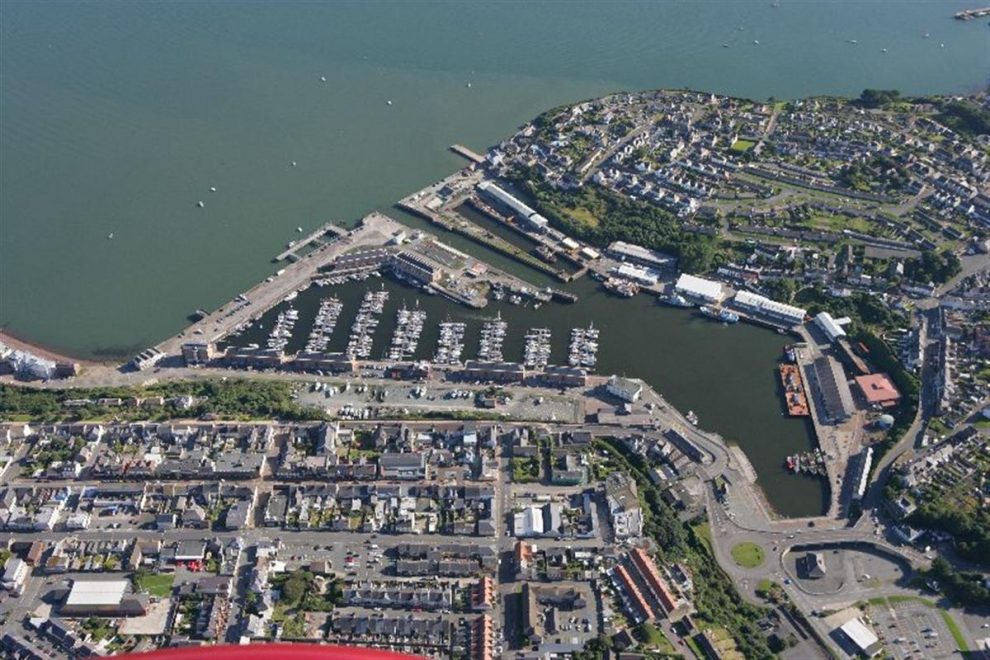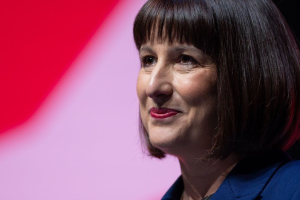‘LIKE drinking a pint of cold sick’, was how Scottish Conservative MP Douglas Ross described the UK Government’s climb down over fisheries policy in talks with the EU.
Mr Ross said the UK Government had “delivered far less than I hoped or expected” for fishermen, before adding: “There is no spinning this as a good outcome. It would be easier to get someone to drink a pint of cold sick than try to sell this as a success.”
The UK Government went into talks with the EU over a deal for the transition period following March 2019 expressing confidence that it would be able to regain control of UK fishing waters at the point the UK formally departs the European Union next year. However, despite rumblings from Michael Gove – Secretary of State for the Environment – and Scottish Conservative leader Ruth Davidson that the return of control over Britain’s fisheries was non-negotiable, it turned out that the UK Government thought it was.
The blow could have electoral ramifications in Scotland, where recent Conservative success in coastal communities has been helped by UK and Scottish Conservatives making the sort of noises that have encouraged Scottish fishermen to back them at the ballot box.
Regardless of the UK’s much-vaunted red lines, the EU made access to British waters by European fleets a red line of their own and the UK Government blinked first.
The CFP has faced harsh criticism in the past, with the Scottish Government calling it “the EU’s most unpopular and discredited policy”. The policy has been accused of being an overly centralised, top-down approach from Brussels to managing fisheries.
A key issue for fishermen is the equal access of EU vessels to UK waters. They argue that as the UK has a relatively large fishing zone compared to many of its continental European neighbours, EU fishermen benefit more from access to UK waters, a criticism supported by the University of the Highlands and Islands.
The Conservatives committed in their 2017 manifesto to leaving the Common Fisheries Policy. The manifesto outlines that the UK “will be fully responsible for the access and management of its waters”.
In the June 2017 Queen’s Speech, the Government announced a Fisheries Bill for the upcoming Parliamentary session. Its purpose is to “enable the UK to control access to its waters and set UK fishing quotas once it has left the EU.”
The UK Government has now abandoned that policy without parliamentary discussion.
The National Federation of Fishermen’s Organisations has reacted angrily, saying: ‘There will be a lot of concern throughout the fishing industry about what seems to be emerging.
‘We were led to believe that the UK would be as an independent coastal state from March 2019. The Prime Minister told us that only a fortnight ago. This timetable and perhaps much else has been conceded as part of the transition.
‘In fact, under international law the UK will be an independent coastal state from March. But we will immediately tie ourselves into an arrangement with the EU that is worse that we had before – as the UK will not have a seat at the table when the quotas are decided.
‘The UK’s central problem with the CFP has been that EU vessels, in value terms takes 4 times as much out of UK waters as our vessels take out of EU waters. That imbalance – essentially an exploitative relationship – will continue during the transition.
‘This is being presented as tactical concession that will not prejudice our longer term aims. But it has all the hallmarks of a capitulation’.
A recent report by the Public Policy Institute for Wales says that, while the Welsh fishing fleet as a whole could gain, there are large divisions in the industry, with most vessels, fishers, and ports likely to be ‘net losers’ from Brexit.
At Milford Haven, for example, over half the fish landed are from Belgian-registered vessels with local fishermen’s smaller boats unable to take advantage of a UK fishery zone post—Brexit.
In addition, only a smaller number of vessels face large potential gains, including some ‘flagships’ that land much of their catch in Spain.
The report’s authors say: ‘Parts of the UK fishing industry have been excited by the prospect of claiming exclusive rights to fish in UK waters and larger shares of fishing quota as a result of Brexit. However, the Welsh fleet comprises mainly small-scale vessels that would not benefit from exclusive access to an extended fishing area. They also catch primarily shellfish species that are not managed through quota limits.
‘Most of the seafood produced by the Welsh fleet is exported to EU countries or through EU trade agreements, therefore potential tariff and non-tariff trade barriers could significantly impact market access and competitiveness’.
The authors highlight that the structure of the Welsh fleet is unique and there is a real risk of it being ‘left behind’ in UK-EU negotiations by the demands of larger fishing interests.
Although there is a great deal of uncertainty regarding the outcomes of Brexit, looking forward they estimate that fishing opportunities relating to Welsh waters post-Brexit will be much larger than Wales’ current share. However, as any increases would accrue to existing UK quota holders, the Welsh fleet requires a new arrangement of quota sharing within the UK to get its fair share.
To take advantage of new fishing opportunities, the authors suggest both the UK Government and Welsh Government will need to make targeted changes to the management of fishing opportunities, so that benefits are felt in Welsh ports, coastal communities and wider society from what is, ultimately, a public resource.
However, that area of governance is one of those the UK Government has announced it will retain in its own hands after the UK leaves the EU.
Mid and West AM Simon Thomas, Shadow Cabinet Secretary for Energy, Climate Change and Rural Affairs for Plaid Cymru commented: “Concerns have been raised by the fishing industry following the announcement earlier this week about the transition period for the Common Fisheries Policy, under which the UK will be “consulted” on quotas rather than an equal partner in fishing negotiations with the situation remaining largely unchanged until 2021.
“Last month, the Public Policy Institute for Wales reported that Wales’ fishing fleet has specific needs, with smaller fishing vessels specialising in shellfish and that they need tariff free access to European markets. There are concerns of perishable foodstuffs being held up at customs, continued pressure on seafood species and no say over quotas for alternative catches.”
Mr Thomas continued: “As it is becoming increasingly clear that the Westminster Government cannot be trusted to represent the interests of Wales’ fishermen and women, measures need to be taken by the Labour Government to safeguard the fishing industry in Wales from the uncertainty of Brexit. We need to empower our communities and country in order to ensure that decisions affecting Wales are made in Wales.
“On so many issues, when Westminster refuses to do what’s best for Wales, we must have the tools to do things for ourselves.”


















Add Comment